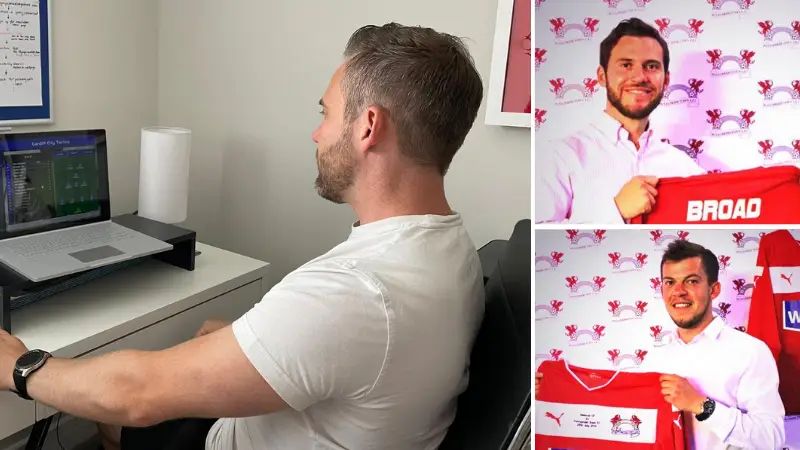
For the first time in their 30 year history, Pontypridd Town will play in the Cymru Premier League next season after the Football Association of Wales awarded a Tier 1 licence to the club following a second-place finish in Division One.
A place in Welsh football's top tier is a dream come true for the Dragons, who have made six additions to their squad in recent weeks as they prepare to compete at the top. One of their latest summer signings, Danny Williams, said the ambition and vision of the club is "really exciting."
That dream, however, seemed a million miles away in 2013, when Pontypridd Town Football Club was on the verge of folding. After failing to achieve promotion by a single point during the 2012/13 campaign, the club lost a large chunk of their financial support when its main sponsor backed out.
Players began to leave in their droves. There was no youth team, no training ground and the club rented a run-down council-owned pitch. But despite a lack of resource and spending power, Pontypridd represented an industrial town of around 30,000 people.
Advert
It was a project that brothers Dominic and Damien Broad were keen to explore.
"We had started talking about how cool it would be to build our own team from nothing," Dominic tells SPORTbible, nine years on. "I'd always loved the idea of managing a team and I was obsessed with the game Football Manager growing up."
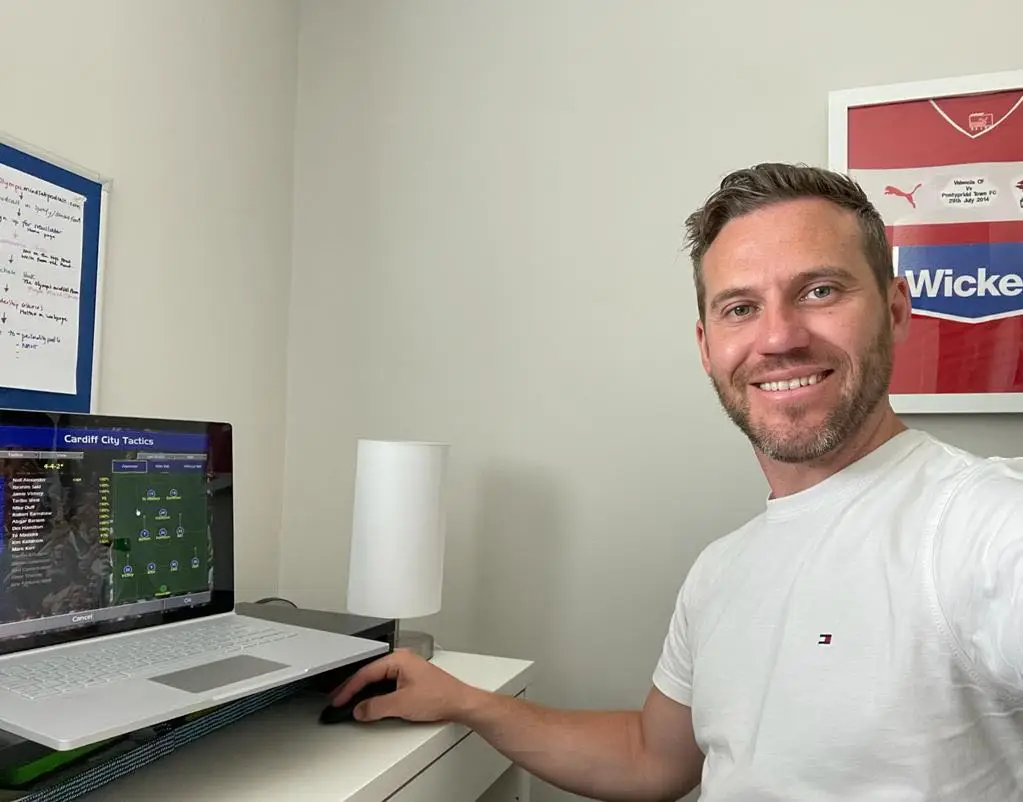
The Broad brothers discovered Championship Manager - or Football Manager as it’s now known - in their teenage years. Like so many football fans in the early noughties, they quickly became addicted to the thrill of signing new players and watching them flourish on the 2D stage.
Looking back, those years glued to a computer screen played a crucial role in their mindset.
"The game definitely inspired us to become managers," Dominic says. "It was a huge motivating factor and probably the number one reason why we wanted to do it in the first place. I mean, in real life, it's not quite as easy as saying 'send assistant' or 'go on holiday' and we learned that the hard way."
As well as years of experience managing in the virtual world - a journey that included a famous Champions League win with Leeds United on Championship Manager 01/02 - both brothers spent a combined total of 25 years playing in Wales’ football pyramid.
In fact, Dominic was preparing for another campaign in the top tier of Welsh football when the Pontypridd job became available. With just 10 days to go until the season kicked off, he approached the club's chairman, Max James, about the vacant role.
"He told me Pontypridd had a great squad," says Dominic with a grin on his face. “And he said the money was gone but all the boys were still here. I thought that was fine and we could deal with it. But when I got there, that wasn't true."
Despite the advice of their friends to turn down the job because it was a so-called "poison chalice", the Broad brothers wanted to put their experience of playing in the top divisions to good use, so they decided to take player-manager roles at Ynysangharad Park.
Some called them crazy to take on such a challenge and soon, reality would stare them right in the face.
"We turned up to the first training session and there were only two boys there," Dominic says. "And that's not an exaggeration. The club secretary gave me this bag with a few flat balls inside and said, 'Sorry but that's all we've got.' I just looked at Damien and thought, 'Oh no, what have we done?' I'd come from a really well-run club to this."
On a cold night in Pontypridd, those two players - Jamie Braddock and Peter Scammel - stood in the middle of the pitch as the club's future remained in the balance. How were the Broad brothers going to get out of this situation? Even the glorious game of Football Manager didn't prepare them for this.
"Every other player had left because the money wasn't there and that's understandable," Dominic says. "They use that wage to supplement their day job and they had no affiliation to the area because they weren't from there, so we set about trying to create a bit of loyalty within the club."
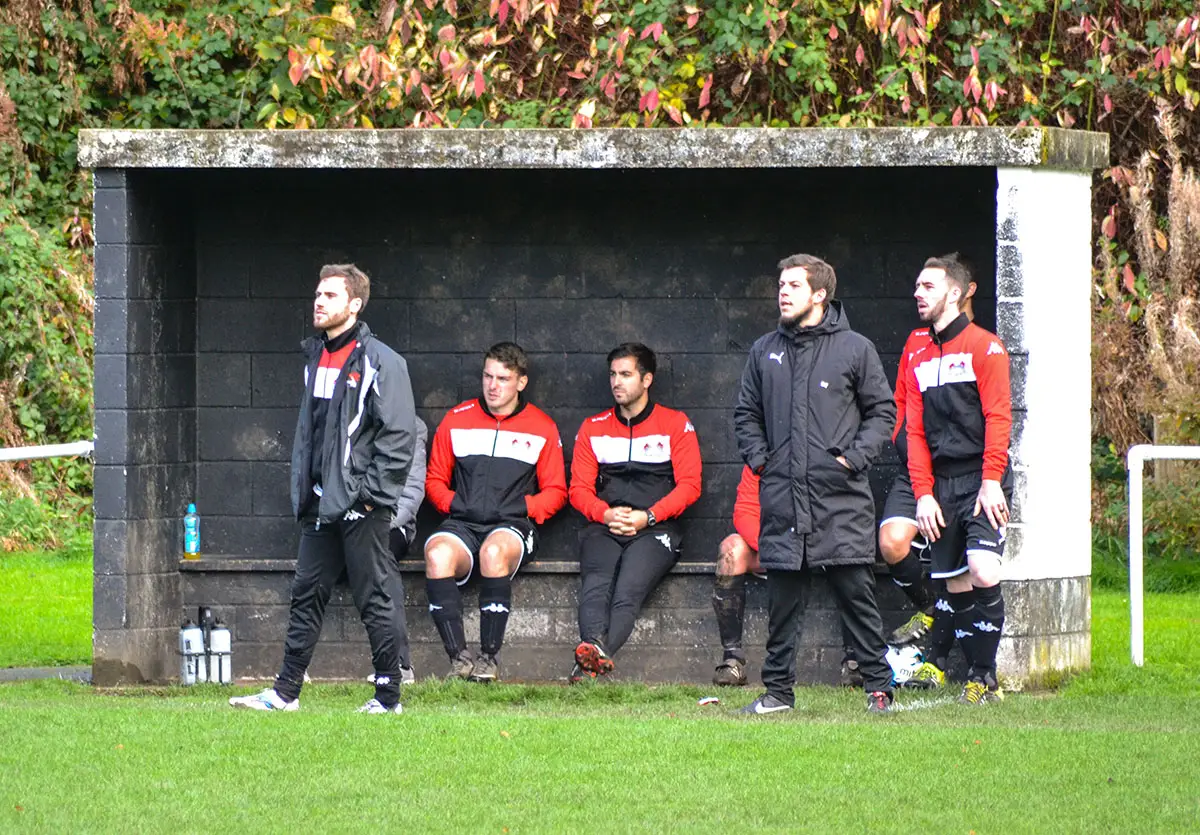
Fortunately, being so young had its benefit for the brothers. They were still playing at a decent level and so were all of their friends.
"We basically sent a text message to all of our closest mates and said, 'Do you want to come and try and set a club up with us and start from scratch?' And luckily, they did. So within three days, we brought in around 20 lads and had a friendly against a local reserve team, which didn't go very well."
In moves that would impress any seasoned Football Manager player, the pair managed to recruit a number of highly-rated players from the Welsh leagues, including former Celtic and Lazio trialist Scott Hillman, who appeared on Sky One show Football Icon, and Omar Abdillahi, a childhood friend and ex-professional with Blackburn Rovers.
Geraint Passmore, the former captain of then-Welsh Premier League side Carmarthen Town, was also brought in to bolster their midfield but because of the tight turnaround, amongst other factors, Pontypridd struggled in large spells.
"That first season was ridiculously hard," Damien says. "I think we went through something like 50 or 60 players at the start to try and establish a decent team, but because we hadn't had a pre-season, it was so tough. Everyone was unfit.”
Things didn't get much easier as the season went on. In fact, going into the final game of the 2013/14 season, Pontypridd needed a win to avoid relegation from the third tier of Welsh football.
Passmore, who did his cruciate the year before, would write his name in the club's history books on a nerve-wracking day in Newcastle Emlyn.
"We asked him [Passmore] to come and play a few games for us as a favour," Dominic explains. "I said, 'Just get fit and then you can go back to the Welsh Premier.' He scored the winner and kept us up. If it wasn't for that goal, we wouldn't be sitting here talking to you because we would have got fired and the club would have got relegated."
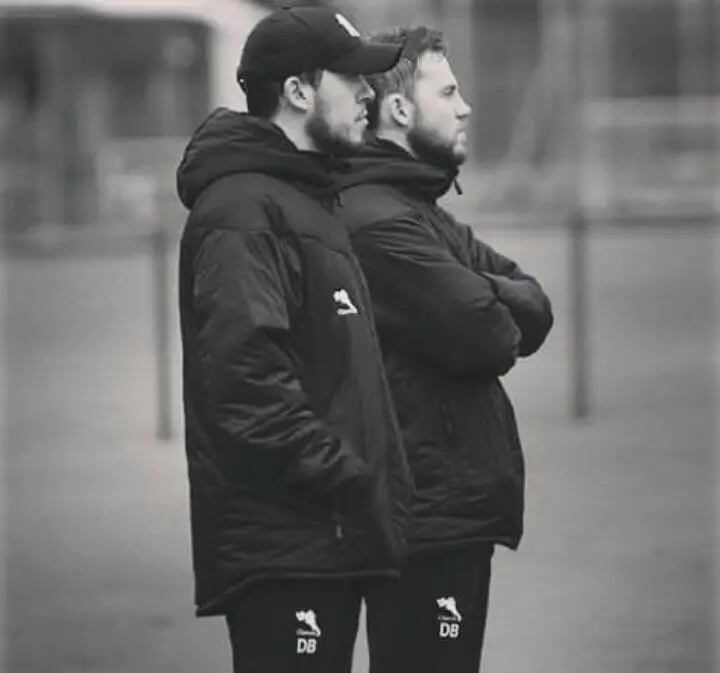
One of the other clauses in Passmore's 'contract' involved paying for his plane ticket to Valencia. Earlier on in the campaign, player-manager Dominic used his contacts in Spain to secure a glamorous pre-season friendly against La Liga heavyweights Valencia at the Ciudad Deportiva de Paterna training facility.
Pontypridd went on to lose 3-0 but the impressive amount of media coverage - and the 200 vocal supporters who travelled to Spain from Wales that day - was the kind of momentum the club needed going into their next campaign.
After a far-from-ideal debut year in management, the Broad brothers would lead Pontypridd Town to a very respectable sixth-place finish in their second season before going on to achieve an unprecedented two promotions in three years.
Dominic and Damien had transformed a club that was on the verge of financial ruin into an ambitious outfit destined for the top division. Through hard work, commitment and a little help from their good friend Football Manager, they were on the cusp of Premier League football.
That being said, there were plenty of bumps along the way.
"For any budding Football Manager players out there, I would say give it a go but don't expect it to be an instant success," Damien says. "There were lots of challenges and well, players weren't always easy to manage. It's not like on FM, where you can fine somebody two weeks' wages. You can't do that. You have to put an arm around them. It's man-management, isn't it? There were some crazy moments in those years, but we loved every second of it.”
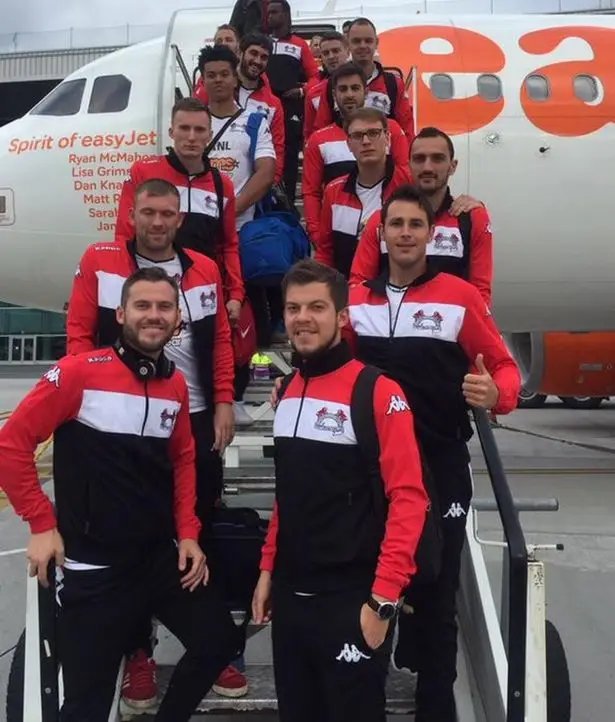
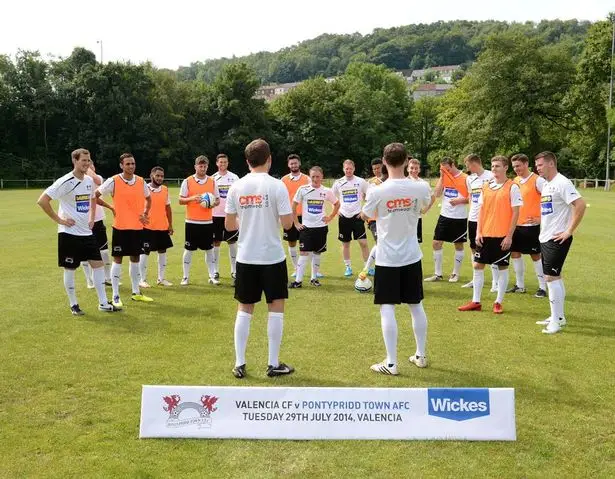
Before they took the job at Pontypridd, a five-year plan had been discussed between all parties. The end goal was to reach Division One and, after doing exactly that with limited resources, the brothers had reached a point where they couldn't push the club any further.
It was time for Dominic and Damien to make sure the club was in safe hands. They were keen to create a more sustainable business model to ensure the club could continue to be a success, both on and off the pitch.
"In Wales, you cannot get into the Premier League unless you have a certain amount of money in your bank account," Dominic explains. "There's a lot of criteria that must be met and ultimately, this was way beyond anything we could do. Many successful football teams fold due to the external pressures of building a club. We did not want that to happen to Ponty.
"We were never going to be able to buy a patch of land and build a stadium because the ground we used to hire was owned by the council, so we weren't able to make any building adjustments to it. At the end of the day, the club was only run by me, Damien, Max James, Rob Pearce and Lyndon Francis. People forget that because of the name Pontypridd.
“We couldn't push the club any further, so we spoke to Steve Savage at the University of South Wales. He was approached by a number of other Welsh League clubs but we basically said to him, 'Look, we've built something really special, we care about it, we want to look after it and take it on to the next level'."
During numerous conversations with the brothers, Savage was hugely impressed with their drive, knowledge and success in taking the club from strength to strength. It didn’t take him long to get on board with the idea.
In the coming months, Savage was appointed Pontypridd Town's Director of Football and the University’s million-pound stadium would soon become their new home. The foundations for Pontypridd to grow in the local area were laid, with a robust business model in place to ensure the club has the finances to be self-sustainable – something they struggled with in the past.
At the start of this journey, the club were guaranteed two supporters; Damien and Dominic’s dad Paul, and their grandad Geoff Parry.
Now, they can seat up to 1,000 fans at the USW Sports Park against some of the best teams in Wales.
"They invested a lot of money in this team and they've got facilities that are better than some Football League clubs," Dominic says. "And now, they're now going to the top division. I'm delighted to see them doing well."
Since walking away from the Welsh side in 2015, Damien has worked for a number of different clubs, including Premier League champions Manchester City. He spent several months in a role fronting the club's coaching expansion in Asia, where he lead a group of coaches in the Hainan Province of China.
The 32-year-old, who also enjoyed spells at Cardiff and Bristol City in their respected youth set-ups, is currently the Academy Manager at League Two side Newport County.
"We take our academy age groups at Newport to go and play against Pontypridd's Academy groups and for them, that's brilliant," Damien says. "But it's incredible for us, too. They've got some of the best facilities in Wales and that is something to be so proud of.”
Being at a Football League club also has its perks virtually. “People I know who play Football Manager say, 'oh I've signed you as my assistant manager' or 'I've signed you as my first team coach’,” Damien says. “It’s brilliant.”
Dominic, meanwhile, was appointed as a headteacher in England following his coaching days at Pontypridd and now, as well as hosting The Olympic Mindset podcast, he is Director of Education for a Multi Academy Trust in the Midlands.
It's a job he compares to one of his former roles.
"I manage headteachers and deputy headteachers across a range of schools,” he tells us. “And it's like being a Football Manager, again. You look at personality types, you look at the best position and you look at their skill sets. You make sure you are supporting them to do their job to the best of their ability.
“We sit here now and I'm currently one of the youngest directors of education in the country and Damien’s probably one of the youngest Football League Academy managers. I think those early days of learning to manage a group of adults were crucial. You were thrust into an environment where there was nothing and we had to make it work.”
As we wrap up our chat, everything naturally comes back to the game of Football Manager. In their own words, it motivated and inspired them to go and become coaches in the real world, even if their nearest and dearest tried to play down its importance in the early days.
"All throughout university and college, my mother always said to us, ‘Imagine what you could have done without Football Manager,’ Damien laughs. “Now I say to her, 'Well actually, imagine where we would be without Football Manager’.”
Topics: Football Manager, Gaming, Wales, Spotlight